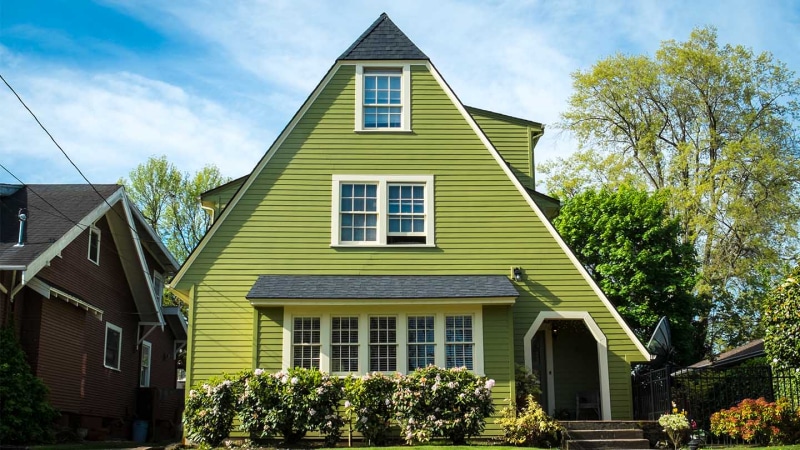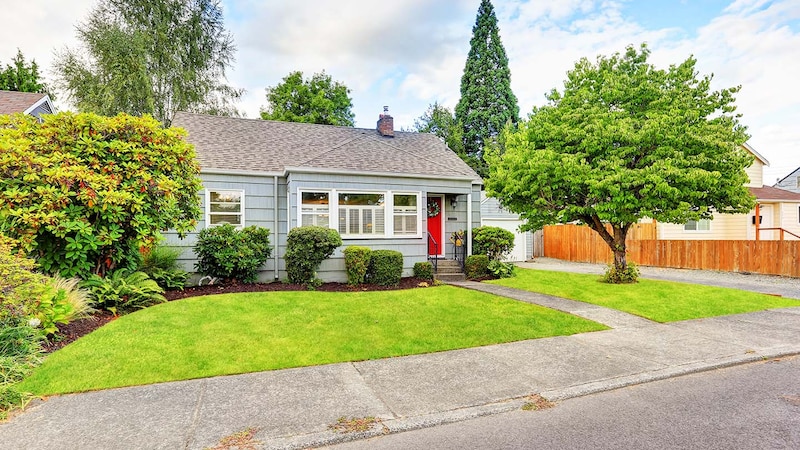The 4 types of government loans

This article is for educational purposes only. JPMorgan Chase Bank, N.A., does not offer U.S. Department of Agriculture (USDA) loans or Native American Direct Loans (NADLs). Any information described in this article may vary by lender.
Quick insights
- Government-backed mortgages help hopeful homebuyers who may struggle to be approved for conventional loans.
- These mortgages are insured by the federal government, not funded by it; to receive this type of loan, you work with an approved lender.
- Be sure to check official government sources (with a .gov address) for official program information relating to each loan program.
Government-backed home loans are insured by the federal government as a form of public good. Certain personal circumstances may make it more difficult for someone to qualify for a conventional mortgage. Government home loans often target a specific group (such as low-income earners, Native Americans or veterans). The rates and requirements could remove common barriers to homeownership.
In this article, we’ll further explain what a government-backed mortgage is and provide an overview of five loans guaranteed by the federal government, including:
- Federal Housing Administration (FHA) loans
- Veteran’s Administration (VA) loans
- U.S. Department of Agriculture (USDA) loans
- Native American Direct Loans (NADL)
What to consider when choosing a government-backed mortgage
Like conventional loans, government-backed mortgages provide the money to buy a house in exchange for years of monthly payments. These loans generally have more flexible approval requirements; however, there are some rules regarding the property you can buy, such as its cost, type or location. Before applying for any government-backed mortgage, you may want to consider:
- Your financial situation: Review your monthly statements, existing debt and credit score. Depending on the specific loan type, details related to your credit, income and debt may be used to approve or deny you for a loan.
- Your long-term goals: Most mortgages are long-term arrangements, so think ahead about what you plan to do over the next 5, 10 or 20 years.
- Your potential eligibility: Review the eligibility details of each loan type to ensure you meet its requirements. Keep in mind, this article provides a general overview of these programs; Reference government websites (with a .gov address) for official information.
- Who your lender will be:Government-backed mortgages are insured (not funded) by the U.S. government, so you will need to work with an approved lender who can issue the mortgage to you. When choosing a housing lender, be sure to investigate their reputation, compare rates and assess the customer experience.
Federal Housing Administration (FHA) loans
FHA loans are government home loans insured by the Federal Housing Administration, a division of the U.S. Department of Housing and Urban Development (HUD). This type of loan is designed with certain income requirements, which, overall, are more lenient than conventional loans. FHA loans allow a borrower to make a down payment as low as 3.5%.
FHA loans require an up-front mortgage insurance premium (UFMIP), which may be financed, or paid at closing. An FHA annual mortgage insurance premiums (MIP) paid monthly will also apply.
Eligibility for FHA loans
- You must have a credit score, though the requirement is lower than most home loans.
- You must find a home that falls within FHA loan limits, which vary by location and are updated annually.
- You must work with an FHA-approved lender.
- The home must be your primary residence for at least one year.
U.S. Department of Veterans Affairs (VA) loans
VA loans are specialized mortgages made available to service members, veterans and eligible surviving spouses. There is no down payment required, and no requirement to pay for private mortgage insurance (PMI). PMI is a common requirement for conventional loans with a down payment of less than 20%, typically paid as an additional monthly cost or lump sum. Additionally, a VA loan may provide fewer closing costs, better terms and better interest rates.
With a VA loan, you can buy a single-family home (up to 4 units), a condo in a VA-approved project, a fixer-upper, or build a new home. A VA loan can also be used to make changes or add new features to make your home more energy efficient.
Eligibility for VA loans
- You must receive a Certification of Eligibility (COE) from the VA. The VA has varied qualifications for active-duty servicemembers, veterans, the National Guard and Reserve depending on the amount of time and year(s) they served, with specific exceptions.
- You must meet standards for credit, income and other financial requirements.
- You must plan to live in the home you’re buying with the loan.
U.S. Department of Agriculture (USDA) loans
USDA loans (sometimes referred to as “agriculture home loans” or Section 502 loans) are intended to guarantee adequate housing for low-to-moderate income individuals in rural areas. With a USDA loan, eligible applicants can buy, build, rehabilitate, improve or relocate a dwelling. These loans provide 100% financing, with no down payment requirement.
Eligibility for USDA loans
- You must purchase in an eligible rural area.
- You must meet income requirements (cannot exceed 115% of the median household income).
Native American Direct Loan (NADL) program
The NADL program is backed by the VA and specifically geared toward Native American veterans and their spouses. Eligible individuals can receive a mortgage with no down payment, limited closing costs and low interest rates.
Eligibility for NADL loans
- Your tribal government has an agreement (or Memorandum of Understanding, MOU) with the VA detailing how the program works on trust lands.
- You must have a valid VA COE.
- You must meet the VA’s credit standards and income requirements.
- You must plan to live in the home you intend to buy, build or improve with NADL funds.
In summary
While these are some of the more popular government-backed loan programs, they may not be the only form of assistance you qualify for. Many states, counties and cities have their own housing programs geared toward residents. Chase is an FHA and VA-approved lender but does not provide USDA loans or NADLs. For questions relating to getting a government-backed loan from Chase, consider reaching out to one of our Home Lending Advisors.



